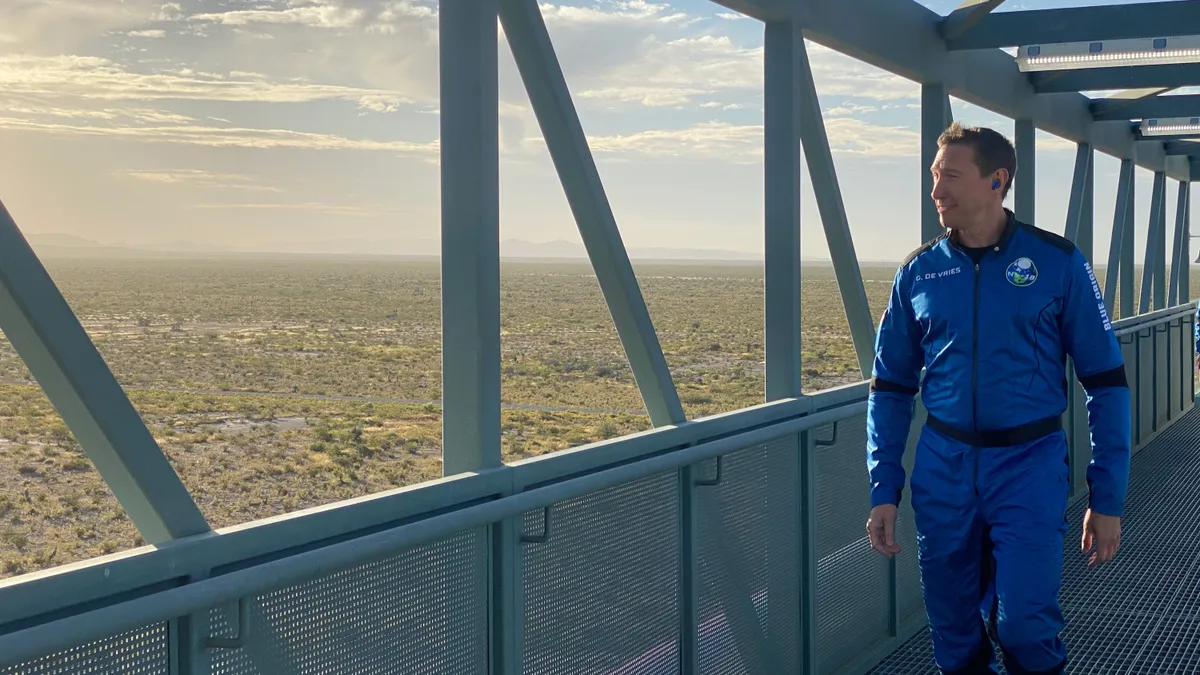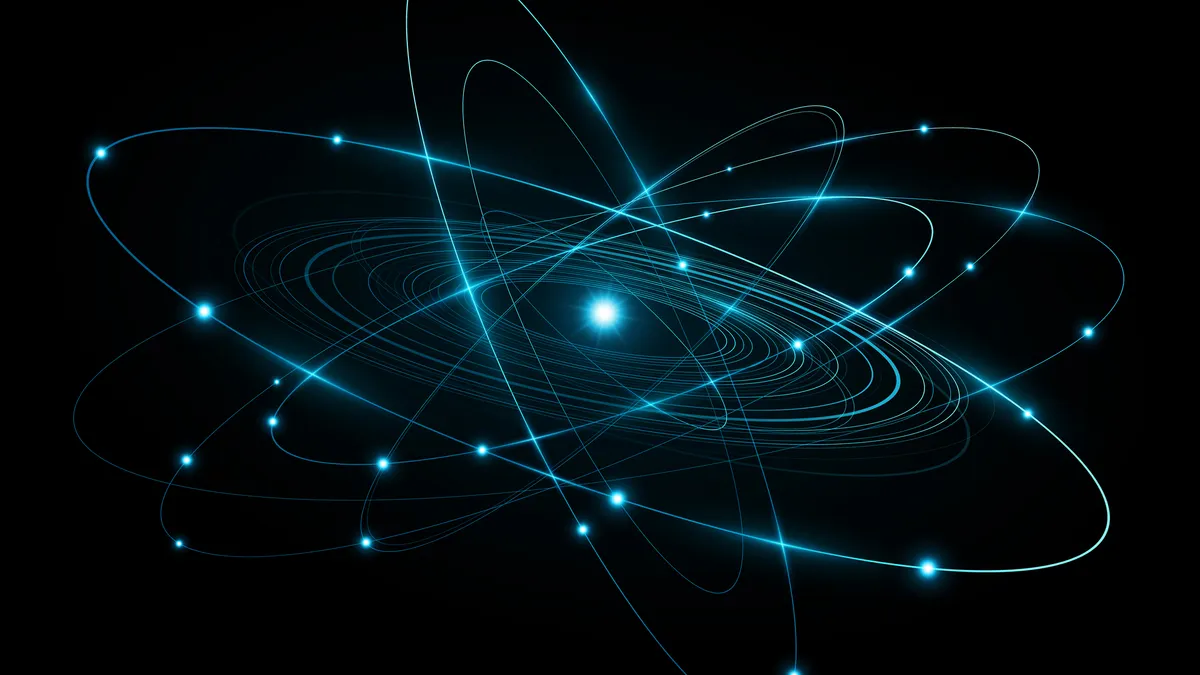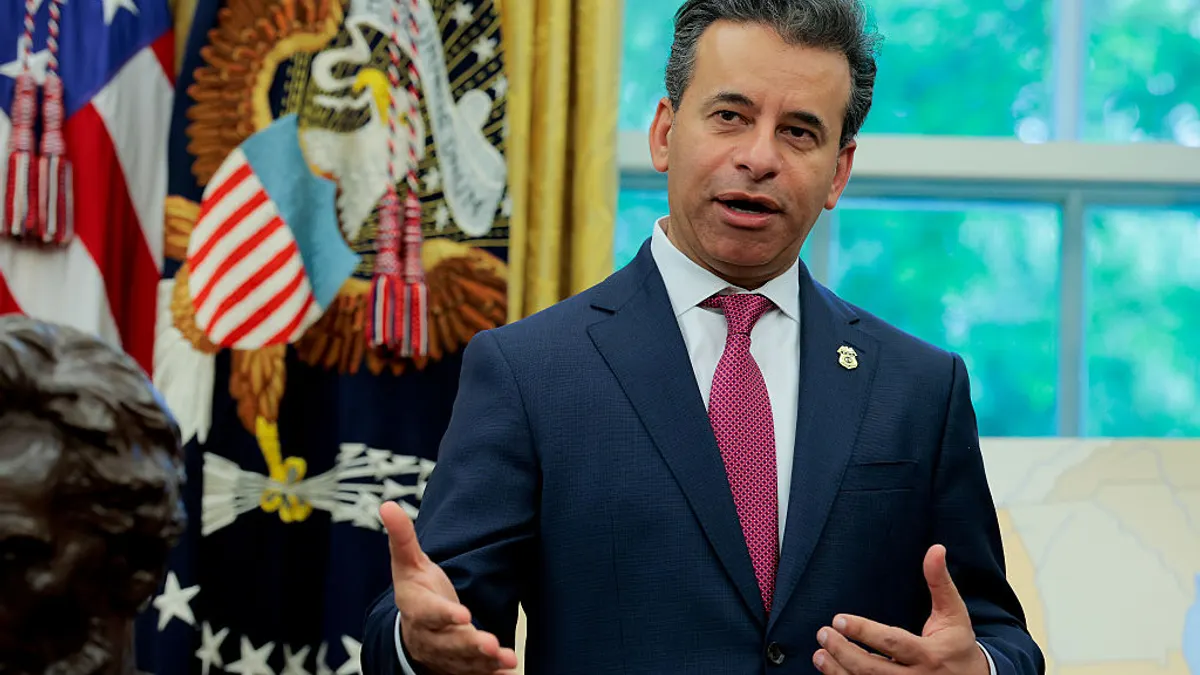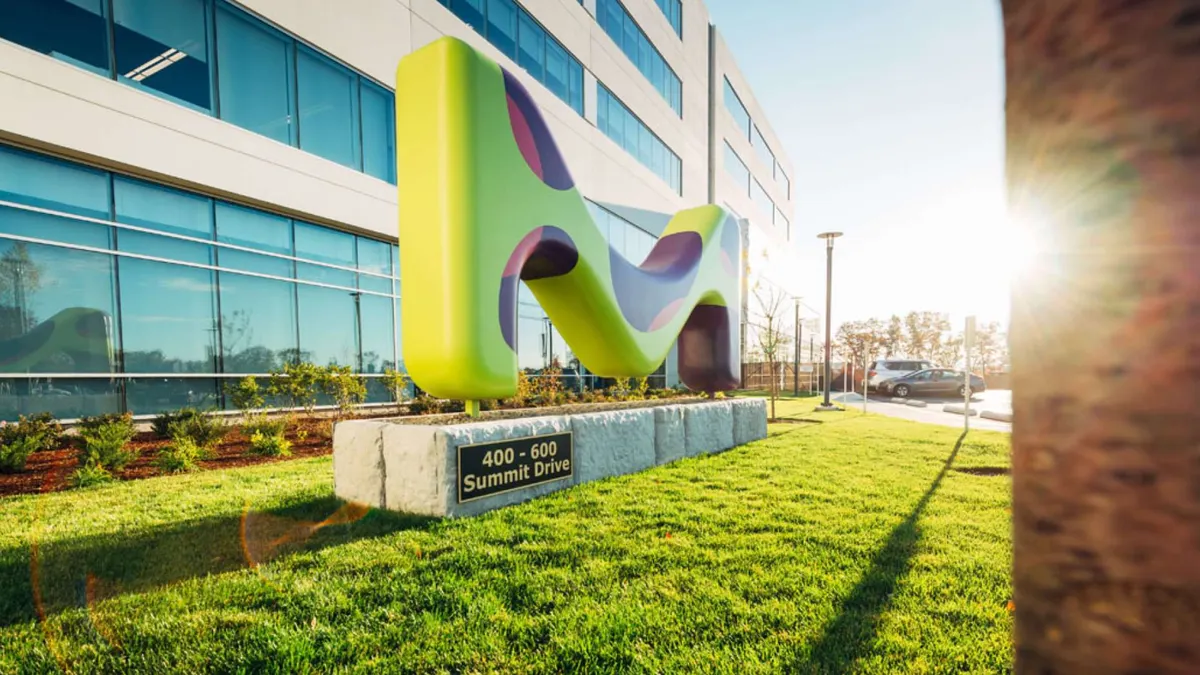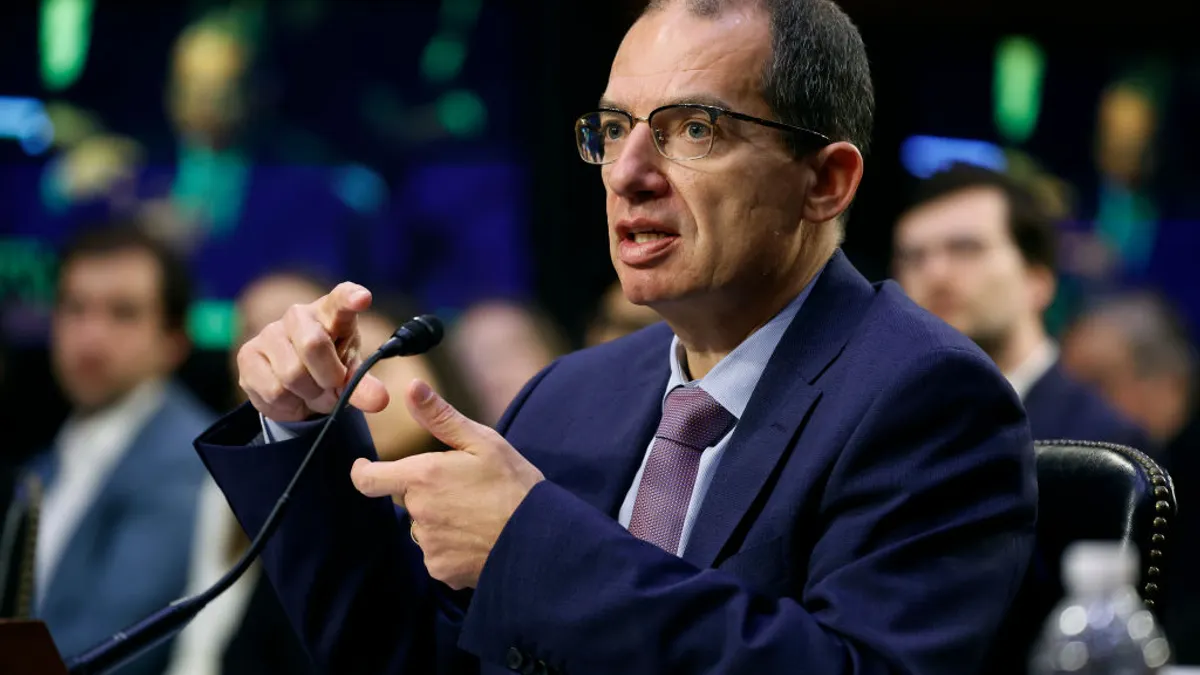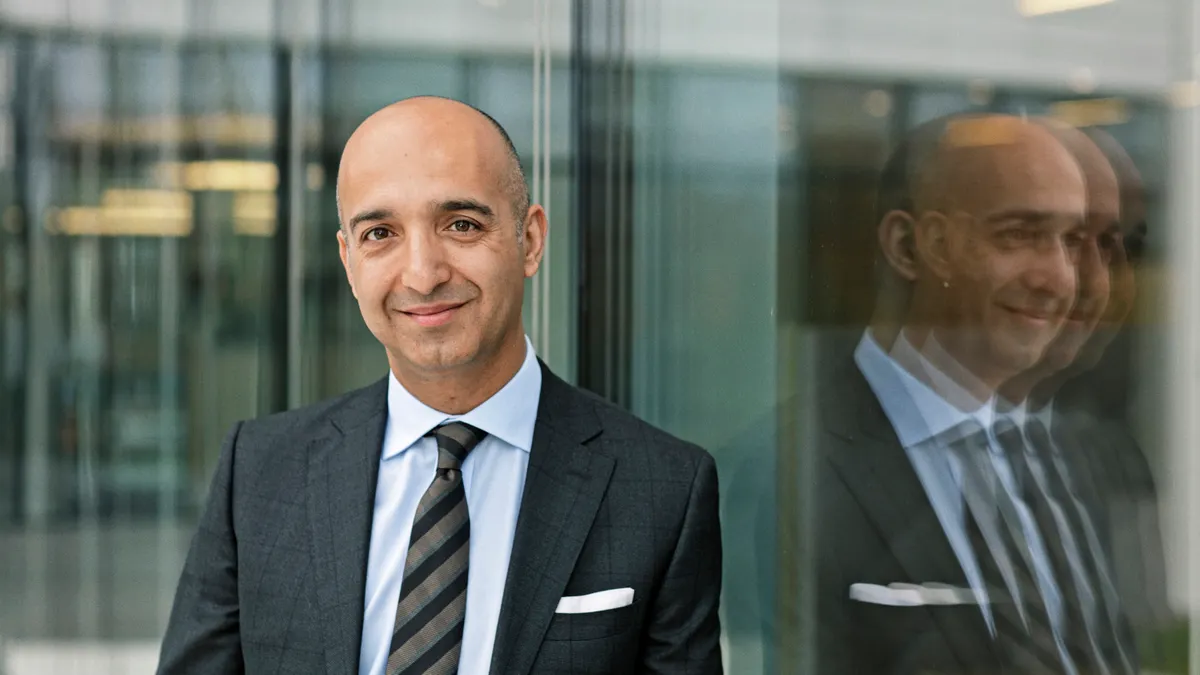Just over a year ago, I had the chance to sit down with Glen de Vries, co-founder and co-CEO of Medidata, and vice chair of life sciences and healthcare at Dassault Systems, to talk about his recent trip away from Earth. Little did I know that this would be the last conversation I would have with my friend.
On Oct. 13, 2021, de Vries briefly launched into outer space aboard the Blue Origin NS-18 alongside three other crew members: the actor William Shatner, Australian entrepreneur Chris Boshuizen and Blue Origin executive Audrey Powers.
Then on Oct. 22, when this interview was recorded, we sat down so that I could hear his reflections on what the trip was like and how it had changed his views about life back on Earth.
On Nov. 11, de Vries died in a small plane crash.
As reports of his death reverberated throughout the industry, it became very clear that we had not just lost a visionary and pioneer but someone who deeply cared about people.
The co-CEO of Medidata, a clinical trials software company he launched with Tarek Sharef in 1999, de Vries was known as an enormously successful entrepreneur. He was also well-known here at PharmaVoice. A multiple-time recipient of the PharmaVoice 100 award, we got to know de Vries throughout the course of his career and frequently highlighted the impact he was having along the way.
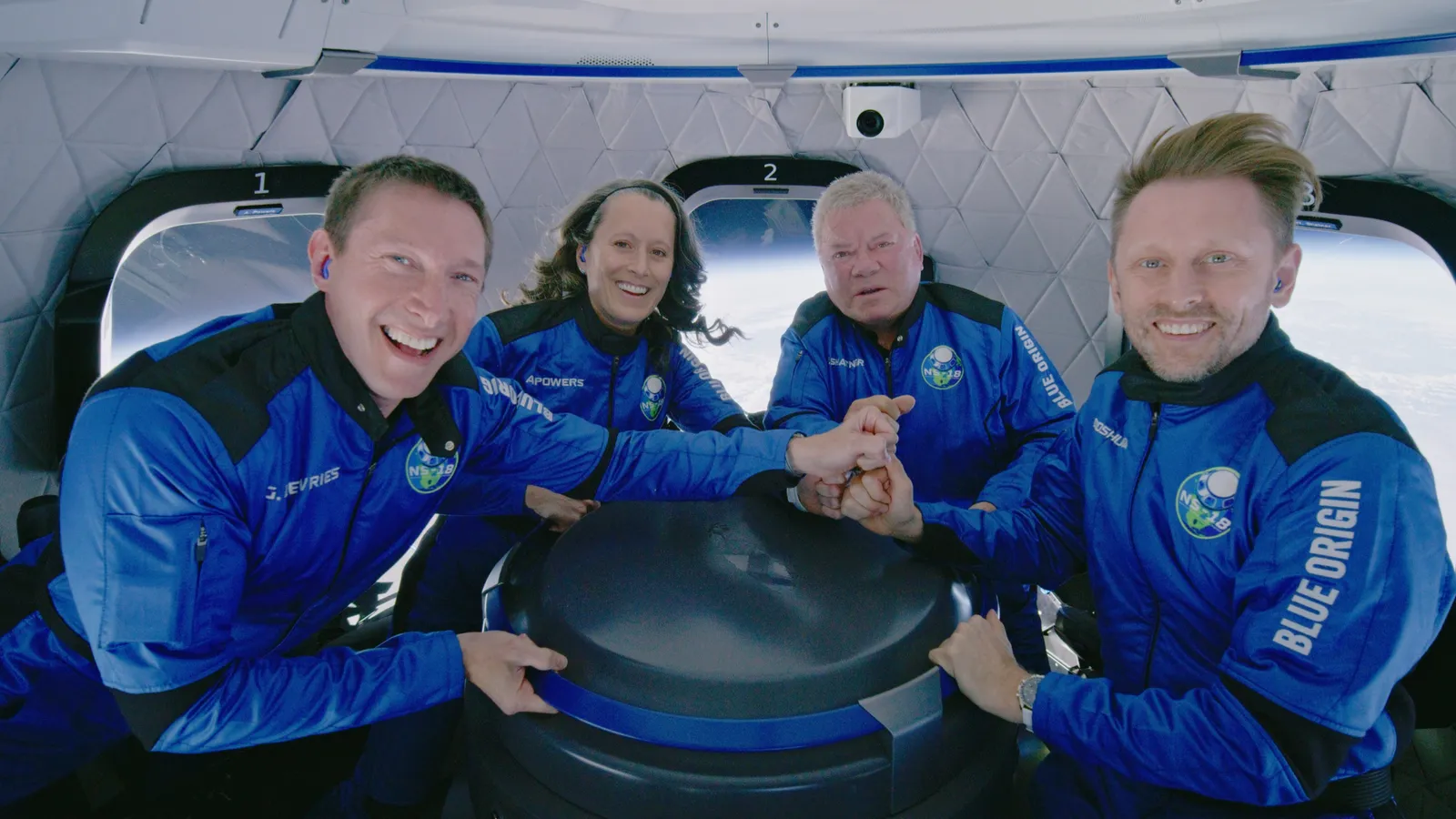
As part of our 2006 PharmaVoice 100 feature, we wrote about how de Vries, “created an electronic data capture platform broad enough in scope and use to change the way science is executed in the business world.”
“Recognizing clinical trial inefficiencies at every level — from sponsor to investigator — de Vries created a product to address these needs and allow trials to be conducted more effectively, ultimately enabling quicker delivery of life-enhancing drugs,” we wrote. “His development and refinement of the Rave electronic clinical-data management platform has been critical to Medidata’s growth and ability to support clinical trials in more than 70 countries, with specialties in more than 20 therapeutic areas.”
Although his impact on the burgeoning field of clinical trial technology was massive, de Vries' influence throughout the industry extended further.
As a mentor and leader, de Vries inspired so many talented individuals to reach for their own personal stars. Because of his warm personality and influence, de Vries will be remembered not just for how he changed the way drugs get developed but for laying a visionary path for others to follow.
His death also crystalized the idea that life is what you make it — and de Vries made the most of what life offered. His insatiable curiosity manifested in many ways — whether it was becoming proficient in Japanese, learning the art and science of yoga, or building mega Lego rocket ships in his apartment.
As a co-author, philanthropist, scientist, technologist — no challenge was too big. In fact, in his 2021 PharmaVoice 100 profile, de Vries noted: “When people tell me something can’t be done, I get excited to do it.”
In addition to creating new ways to increase the efficiency of drug development and clinical trials, the venture to space was another experience that lit him up.
I had the pleasure and honor of sitting down with my friend to talk about what his opportunity to travel beyond earth’s limits meant and how his two passions could work in parallel to benefit humanity. The full video interview is being published here for the first time.
Watch the interview:
Read the full interview transcript:
Taren: Hi, welcome to our one-on-one video program and I’m here with astronaut Glen de Vries, who also happens to be co-founder of Medidata and Vice Chair of Life Sciences and Healthcare at Dassault Systems. Nice to see you, Glen, back on Earth.
Glen: Nice to see you, Taren. Wow, it feels very cool to be introduced as astronaut Glen de Vries. Thank you.
Taren: You’re welcome. Well, now I saw the pin so I know it’s true. For the audience we should let them know that we had a conversation before you actually took off in October. I’d like to know from you, you had certain expectations of this flight. It probably didn’t meet those expectations?
Glen: Yeah, so my expectations I would say in the simplest terms were met and exceeded, but I don’t think that really gives a sense of the tremendous degree to which they were exceeded. I was saying to people when we think about statistics, I was talking to someone who does quantitative research years ago – or I like to do quantitative, she does qualitative. I said, “We can understand everything with averages and curves.” This qualitative research said, “Well, you can look at all that, but if you know somebody is as smart as Albert Einstein that gives you a data point about the nature of human intelligence that you wouldn’t understand if you just looked at the standard statistical views.”
I got a data point about the nature of I think how I feel about our planet and some very human parts of the experience, not just scientific ones, that have changed the nature of how I feel about things. It really was a transformational experience, for sure.
Taren: I know it’s one that’s been a lifelong pursuit for you, because you have been a fan of space for a long time. I saw some posts on social media with your mom I think in the background lighting off a rocket in a field, so that was really poignant. When you think about that and you go back to that little kid and here you are now realizing that life dream, what does that mean to you?
Glen: Yeah, I remember quite literally my mom had found that picture just a couple days before we launched and she sent it to me. Everybody in and around the astronaut training center saw it and just got excited about it. So, okay, I posted it on social media and I was just thinking about launching those rockets as a kid. To be perfectly candid I still will occasionally make a model rocket. But the memory of that and just the idea of it was right there in my head because it was such a recent thing that she found this photo as I was sitting in the seat, the countdown is going from nine to one, and I start to see the red and orange and yellow reflected off the tower. My window, my seat was right next the tower. And the ship start to move.
I actually had this idea in my head beforehand, talking about meeting and exceeding expectations, that that first movement of the vehicle would kind of be this moment of wow this is really happening. It was definitely a big wow this is really happening and how did I get so lucky that this happened to me. It was incredible.
Taren: I think luck has got something to do with it, but also preparation. Because God favors those who are prepared to be able to take advantage of some of these opportunities as they come along. I was going to ask you can you walk us through some of those steps as you got onto the spaceship. And after you were delayed for a day. Was there a certain amount of anxiety there or was it like whoomph and then you were ready to go?
Glen: Actually, no anxiety from the delay. Actually, Chris Boshuizen, one of the other people on the crew who’s a satellite engineer so he understands everything about the space industry, was saying we’re doing a great job of scratching off all the places on our astronaut bingo card. We had a day for scrubbing and we had a hold. You delay when the weather’s not safe because you’re being safe. There’s a hold when people need to catch up with things and procedures and essentially your checklist because you want to make sure everything is done.
So there wasn’t really any anxiety. I was really excited when I got in the capsule. I had an amazing trip, not just at the top and looking out at Earth from space, which is extraordinary. I’m still having a hard time really articulating what I think I saw and felt. But, also, the way up and the way down. And seeing the sky go from blue to black and seeing the straight line of the horizon start to curve and seeing this kind of zooming out and then back in. It’s a short flight but you go through so much in it of zooming out and zooming back into human scale and seeing different patterns emerge. Then this beautiful view of Earth with colors that, maybe it’s my mind playing tricks on me, but just seemed different and more vivid from up there than they are here.
I will say it was also an extraordinary human experience. Actually, Bill Shatner, who was on my flight, suggested that even though we all wanted to look out the window that we have this moment of camaraderie at apogee, the very top of our arc. We all stopped looking out the window and kind of put our hands together in the center of the crew capsule. Your tears don’t come out because you’re in a microgravity environment, but I could see these balls of water in my crewmates’ eyes as we realized we were just having this experience together.
Actually, then when we were coming back we were under the main chutes and we hadn’t talked about this part in advance. We had talked about everything else we were going to do. Chris suggested that before we get out of the capsule let’s just take one more minute together. We touched down and you wait for the crew to come to get everything ready to get you out of the capsule. Jeff Bezos comes and opens the door and welcomes us back to Earth. We kind of unclipped from our seats and without a word we just wound up in this kind of group hug in the center of the capsule. We’re pressing our foreheads together. Everybody is – now we’re in a one G environment, everybody is crying at that moment.
I just think because it was so extraordinary and because we kind of lived this experience, the flight and all the training for it, together it was incredibly special from just that human touch and connectivity perspective. Besides the scientific, amazing view of everything.
Taren: So poignant in bringing that human side to science and to space that we don’t often hear about because we don’t get to often talk to astronauts. To have Bill Shatner, I thought that was pretty brilliant to have Captain Clinical with Captain Kirk, I will say. I gave you top billing, I know.
Glen: Thank you.
Taren: That’s because I don’t know him, but I know you. Tell me what that was like, too, to be with William Shatner. Did you feel that that elevated what you went through? Because it certainly got a lot of publicity. Do you think it took away from what the rest of you all were doing? Or was it additive?
Glen: First of all, like I was saying, we spent a lot of time training together. I’ve heard from other astronauts, and it was true for us, too, for every moment you’re in space there’s a lot of moments of getting ready for it on the ground. Audrey, Chris, Bill and I really – I think I’m going to be friends with all of them for life. We bonded in this experience in a really beautiful way. In a way I’ll always cherish.
I think it also is really exciting that this iconic character of Captain Kirk that so many people saw on the small screen and the big screen, including me as a kid and as an adult, as a fan, you saw the person who played this character go to space in a way that is a manifestation of science fiction becoming science fact, that I hope is an inspiration for everybody. The fact that it’s Bill Shatner means it can be an inspiration for maybe millions, billions maybe of people. I think that’s exciting and part of what all of us wanted to do was inspire people.
That said, Captain Kirk is a character and Bill Shatner’s a guy, and a lovely man. Again, like Audrey, like Chris, I went to space with my friends. That was special and different than that, too. But I’m glad that we can inspire a lot of people.
Taren: That’s great. I think the quote he said when he came down was, “Everybody on Earth should be able to do this.” So talk about it, inspiring so many others as you talk about inspiration.
Glen: Yeah, and I think it’s so important for people to I hope have the perspective. One of the reasons I think it’s important for people to be inspired is this trip is an incredible privilege. I’m so lucky that I was able to do this. But, also, part of that privilege is that I am able to fuel, I guess kind of pun intended, the beginning of this industry. It has so many parallels to life sciences. In the United States we have the FDA that creates a regulatory framework around protecting the public health and safety. Then we have academia and organizations like the NIH and the NCI that create this intellectual fabric that underpins our industry. Then we have biotechs and pharma companies and medical device companies on top of that creating this virtual cycle of innovation that benefits patients.
Now in the space race, this new space race, and I mean that in the most positive term, you have the FAA and you have NASA and then you’ve got Blue Origin and SpaceX and Virgin Galactic and Axiom and all these companies who are now coming into this who are going to create this virtuous cycle of innovation.
Seeing Earth from space is awe inspiring. Actually, frankly from a climate perspective haunting almost. I’ve been doing this with water.org and really trying to make sure people understand how precious the resources on our planet are and how we can use them better. It happened to me, I promise it will happen to anybody, you’ll feel more that way when you’re lucky enough to see it from space. But, also, that virtuous cycle of innovation and investment is going to create technologies that are great for space, but great for Earth. They’re going to help us use water better, they’re going to help us think about preserving the Earth.
Blue Origin’s mission, which I feel so deeply connected to, is getting millions of people to live and work in space for the benefit of Earth. I have kind of my own thing that I like to add to it, which is getting these millions of people living and working in space for the benefit of Earth the way we as humanity would like Earth to be. You just see it from up there and it’s so welcoming and nurturing and you just think home. You really feel that in this amazing, visceral way. It’s a home for all of us and I feel a huge sense of urgency that maybe I intellectually knew but I emotionally feel now about how we need to treat it like the preserve that we need it to be to stay the way we want to live on it. Yeah, we can pave the whole thing and put domes on and air condition it, but that’s not that home we have. This is about the equity and access that preserves that home for everybody.
Taren: That’s such a noble cause, so thank you for taking on that mantle along with your other astronaut buddies, as you can now call them. In addition to Blue Origin’s mission you also have a mission. You have been an innovator in the life sciences space for going on 20-plus years. How does this experience help translate what you want to do in terms of continuing to transform the life sciences industry? As you said, they have safety, we have safety, et cetera, et cetera. So I think there’s some parallels there, yes?
Glen: I think there’s a huge number of parallels. I also think one of the things that we know in life sciences that not everybody else gets is how things emerge from layers of technology and innovation. I’m talking about digital technology and biological technologies. People don’t always appreciate – let’s talk about something outside of both for a sec. Research and quantum physics is really important when you are not just making transistors, but turning them into tiny microchips that turn into iPhones that create networks of people that are probably involved in how anybody’s watching us talk, and certainly the way we’re communicating now. These things emerge as you layer things.
In biology we have a very often reused process, pathways and molecules that we learn how to manipulate, things that we can dial up and dial down. They help us create medicines, they help us create therapies. Sometimes we realize that those therapies can be used in indications that we didn’t even think they were related to because you get, again, these emerging things that come out of these layers of technology and innovation. I think that’s a huge part of what we can, should expect from the space industry. And we will benefit from.
Again, I think the most important thing is we create those benefits and we make sure that everybody can access them and benefit from them. The same way all of us in our industry are sitting here trying to make new therapies and trying to design them in a way that as many people on Earth can access them and benefit from them. There’s lots of parallels in terms of the way I think the world can think about space that we actually kind of have as the bread and butter that we think about everyday in life sciences. We have a lot to teach.
Taren: I love that, because some might say this was a vanity project just to be able to do this, but you actually went into it with a total purpose. I think that’s very admirable because it could have been just as easy the other way. But knowing you the way I do know you, I can see how this has given you further purpose in terms of figuring out how to translate medicines to help more people around the world. Just as you’re looking at space as a way to help the Earth and help people around the world. What’s next? What’s a next step for you in terms of this experience?
Glen: Well, thank you for saying all that. I hope so. And apropos to that, I’m just under 50 years old, I’ll be 50 next year. The Earth’s population is double what it was when I was born. And whatever small part Medidata and Dassault Systems and Glen has played in that I won’t be ashamed of saying I’m proud of.
I think that we in Life Sciences, capital L, capital S, are doing the right thing ethically, medically in trying to extend and preserve life. But what’s on Earth is a zero sum game. Yeah, we can and will and need to use everything here a lot more efficiently. But there’s only a certain amount of H2O on the planet and a certain amount of hydrogen, H2 and O2, that’s not in H2O. We need to think about getting resources and getting energy from outside of that closed loop system of our atmosphere. We need to learn how to get things that are happening on Earth that are not good for Earth off Earth. I really think the right thing for our civilization is to reach out beyond the planet.
I, with more conviction than ever, plan to keep doing what I’m doing in life sciences directly, to keep trying to be the best advocate I can be for STEM across the board, and certainly in healthcare and medicine. I hope to take this experience and really try to inspire people the way – it may be a different kind of inspiration, but having somebody like Bill manifest this manifestation of science fiction and turning it into something real. In my way through education and things like Carnegie Mellon University, my alma mater, et cetera, can get more people thinking about how important this is and wanting to push these frontiers. We need to push back these frontiers and we will all benefit from them. That’s what my I think life’s purpose has turned into.
Taren: That’s amazing, to democratize space travel is certainly quite a mission. You have your work cut out for you. On a more personal side when you first landed what was your first thought when you all came together? Was it like, whew, we made it back? Or I don’t even know. Can you put it into words? Then I would ask you how that experience resonates now a week to ten days later.
Glen: Yeah, slightly embarrassing, I think I had a reputation amongst the crew in the Blue Origin team as being the guy who’s always smiling. I think I might have that reputation in general. Sarah Knights, who was our crew member number seven, was an amazing person. She’s the part of the team that trains the astronauts, lives with them. Basically the person on the crew who’s with you all the time other than the moments you’re in space. I haven’t seen the whole thing yet. We were reviewing some of the videos from inside the capsule. We land and my head pops up and I’m smiling so broadly. Then I move again and she’s like, “I thought the frame had frozen, you were just sitting in there smiling.”
I was elated because not that we were safe. Honestly, I work in clinical research, I know about safety and risk mitigation. I fly my little plane, I know about safety and risk mitigation. I knew I was in great hands and I knew that we had a great vehicle and a great program behind us. But I had had that experience I was trying to kind of describe before, and it was so impactful, it was so incredible, it was so fun. I’m not going to pretend for one second it wasn’t the most fun ten minutes of my life. And to realize I think in that moment of touchdown that that was behind me in a positive way, that was now kind of in my toolbelt of experience that I could bring to other things, was incredibly exciting.
Then I got to see my loved ones and hang out. There were some hugs that were some of the best hugs in my life, seeing those people again. You realize very viscerally because you’re so far away. Not any farther – actually, you’re quite close. You’re 60-something miles away. But you’re not used to that distance being up.
Taren: It’s a different direction, yeah.
Glen: I think all that perspective on the planet, you get it about your relationships, as well. And so I was really excited to have seen what I saw, but then also to see them felt really nice.
Taren: That’s awesome. Well, again, we’re so excited for you and we as a team watched you come down. And smile you did, sir. It was on your face for the entire time the coverage was going on. And you’re smiling still, so that’s fantastic. What a once in a lifetime opportunity. Or maybe not. Have you called Elan and seen if he’s got a spacesuit for you?
Glen: I don’t think there’s anybody who has been to space for any amount of time who would not enjoy more space.
Taren: You don’t have a non-compete or anything, do you, with Jeff? You can go if you need to?
Glen: I’m focused right now on taking that experience and, again, making sure everybody understands how important things on the planet are, how we can move them and hopefully catalyze a lot of people who will have the opportunity to feel the way I felt and feel now. That’s the priority. Will I get to go to space again? Yeah, I sure hope so. We’ve got other stuff to work on right now.
Taren: I wouldn’t doubt it for one second that you won’t be back up there. Congratulations and welcome back.
Glen: Thank you so much, Taren. It’s awesome always to talk to you like we did in DIA however many years ago that was.
Taren: Twenty-one years ago. I think that was 20 years ago. Time flies.
Glen: Always a pleasure. And, yeah, it’s amazing to think little Taren, little Glen back then, now we’re here together still. I love it.
Taren: Fantastic, Glen. Thank you so much for your time.
Glen: Thank you.



